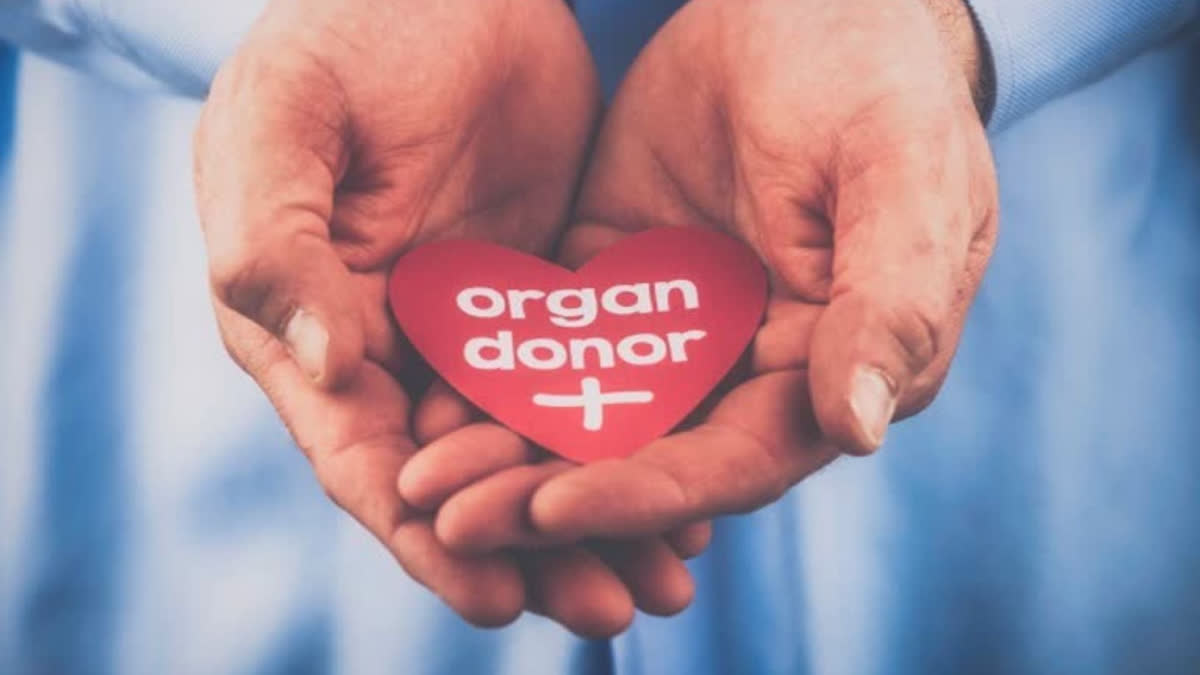New Delhi: The National Heart Transplantation Day is observed annually on August 3 to raise awareness about the life-saving procedure that replaces a damaged heart with a healthy donor heart. The day serves as a reminder of the importance of organ donation and the transformative impact it has on patients’ lives. The day also discusses alternative options for individuals awaiting donor hearts.
History & Significance
Before 1994, the only way to get a heart transplant for Indians was to go abroad. However, After the Transplantation of Human Organs Bill finally received the President’s assent on July 7, 1994, a group of surgeons led by P Venugopal successfully performed India’s first heart transplant at the All India Institute of Medical Sciences (AIIMS) on 3 August the same year.
In a 59-minute procedure, a team of 20 surgeons led by Venugopal conducted the successful heart transplant surgery on Devi Ram who subsequently lived on for 15 more years until he died of an unrelated brain haemorrhage.
It was on August 3, 2003, the then Prime Minister Atal Bihari Vajpayee announced August 3 as the National Heart Transplantation Day.
Heart Transplantation Requirement In India
Ever since the first heart transplant was conducted in India, the number of patients waiting for healthy hearts has soared. However, donor hearts have been less. In India, around 50,000 people require heart transplants annually, but merely 0.2 per cent are fortunate enough to receive suitable donors.
Government data in possession of ETV Bharat shows that heart transplantation witnessed ups and downs over the last decade. As per statistics provided by the National Organ and Tissue Transplant Organization (NOTTO), India registered 30 heart transplants in 2013, followed by 53 in 2014, 118 in 2015, 216 in 2016, 237 in 2017, 241 in 2018, 187 in 2019, 89 in 2020, 151 in 2021 and 243 in 2022.
NOTTO
The National Organ and Tissue Transplant Organization (NOTTO) is a National level organization set up under the Directorate General of Health Services, Ministry of Health and Family Welfare, Government of India. It functions as a nodal networking agency and network for the procurement, allocation and distribution of organs and tissues. The national network division of NOTTO functions as the apex centre for all Indian activities of coordination and networking for procurement and distribution of Organs and Tissues and registry of Organs and Tissues Donation and Transplantation in the country.
Challenges in Transplantation
The biggest challenge in heart transplants is the availability of suitable donors. Donors of heart transplants are primarily post-accident victims and the decision to donate their organs lies with the families. Earlier, the willingness of families to donate organs after such incidents was quite low. However, there has been a significant shift in public awareness and perception surrounding organ donation over the years and increasingly more people are now willing to donate organs. Transplant success stories in various parts of the country are an encouraging factor for heart transplantation.
Cause Of Poor Organ Donation
Poor identification and certification of brain stem death and brain death cases is one of the causes of the low rate of organ donations in India. Minister of State for Health Anupriya Patel on Friday informed the Parliament that the other common causes of the low organ donation rate in India include lack of awareness, non-availability of infrastructure and trained manpower.
“Brain death happens commonly in cases of direct traumatic injury to the head (e.g. road accident) and brain stroke. As per the report of the Ministry of Road Transport and Highways titled “Road Accidents in India 2022”, road crashes in India claimed about 1.68 lakh lives during the calendar year 2022. Likewise, as per the Guidelines for Prevention and Management of Stroke, 2019 from the Ministry of Health and Family Welfare, studies estimate that the incidence of stroke population varies from 116 to 163 per 100,000 population. If identified and certified promptly, both the road accident patients as well as the stroke patients have the potential of donating organs,” she said.
Recent Initiative From the Health Ministry
In a recent letter sent to the principal secretary of health of all States and UTs, Dr Atul Goel, director general of health services that comes under the health ministry said that the Government of India is committed to promoting and augmenting organ donation for saving the lives of those suffering from various organ failures. “Organ donation is feasible only from the brain stem of dead patients (before the heart stops). It has been noted that many times due to various reasons and situations like death happening outside the hospital, cardiac death happening before the patient could be admitted to ICU, patient admitted in ICU but cardiac death occurring before certification of brain stem death could be completed etc,” Dr Goel said.
He further said in such a situation, body donation is possible. “Where organ donation is not possible, the option of body donation may be explored and family members may be encouraged and facilitated for the same. This will go a long way in offsetting the shortage of human cadavers in medical institutions,” said Dr Goel.
Read More:
1. Experts Raise Concern Over Rising Heart Ailments Among Youths At Hyderabad Cardiology Conference



